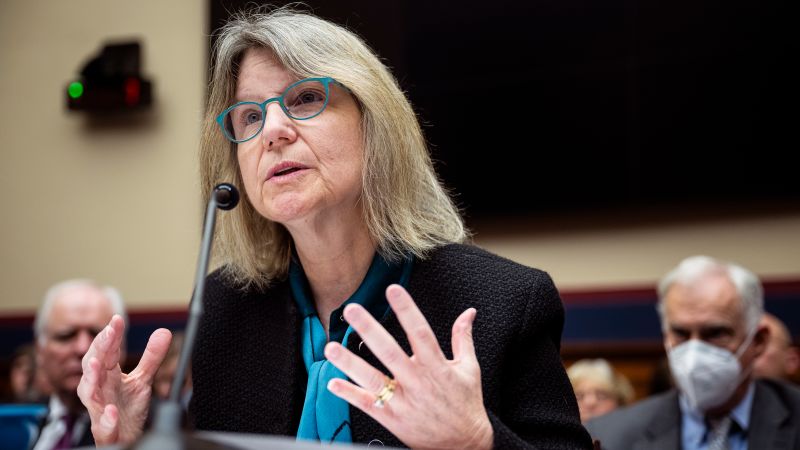MIT President Sally Kornbluth, the only university president who testified before Congress last month and is still in power, said the school is looking for ways to address tensions from the Israel-Hamas war, even as pressure mounts on her to step down.
“I’m working to use every lever available to address conflict on our campus, enhance the tenor of our discourse and help us find improved ways to live and work together here at MIT,” Kornbluth said in a memo on Wednesday.
The memo comes after Bill Ackman, the hedge fund billionaire who successfully fought to end Claudine Gay’s presidency at Harvard, has set his sights on Kornbluth.
Minutes after Gay’s resignation made headlines, Ackman posted on social media: “Et tu Sally?”
Kornbluth acknowledged the pressure on universities right now.
“The Israel-Hamas war continues to cause deep pain for many around the world, including at MIT, and is an ongoing source of tension in our community,” Kornbluth wrote in the memo. “Here on campus, its repercussions have pressure-tested some long-standing systems and assumptions, presenting challenges to our community and to fulfilling our mission of research and education.”
Kornbluth announced “new steps” aimed at addressing these challenges and fighting antisemitism, Islamophobia and hate, including making sure MIT’s DEI (diversity, equity and inclusion) programs “effectively meet campus needs.” She said MIT plans to soon announce a new vice president for equity and inclusion.
MIT, Harvard and other universities have also faced pressure in protecting free speech while combating hate speech.
On that front, Kornbluth announced a new committee on “academic freedom and campus expression” that will immediately examine policies.
“It’s clear that we need a better sense of how to navigate the principles of freedom of expression, which we must protect, and the need to guard against harassment, bullying, intimidation and discrimination – policy violations that must be subject to discipline,” Kornbluth said.
The MIT president reiterated that the community needs to “lean into the idea that there’s a difference between what we can say and what we should say.”
“We cannot expect discipline and policies to magically resolve all or even most difficulties that emerge in how we relate to each other in speech,” Kornbluth said. “We need to rely on each other for decency and compassion.”
Last month Kornbluth, University of Pennsylvania Liz Magill and Harvard University President Gay testified before a House committee and drew fire when all three refused to explicitly condemn calls for genocide against Jewish people as against university policies.
Magill stepped down from her position shortly after the hearing. This week, Gay, who had also been dogged by allegations of plagiarism, stepped down from her post. Both will remain at their respective universities as faculty members.
Read the full article here




